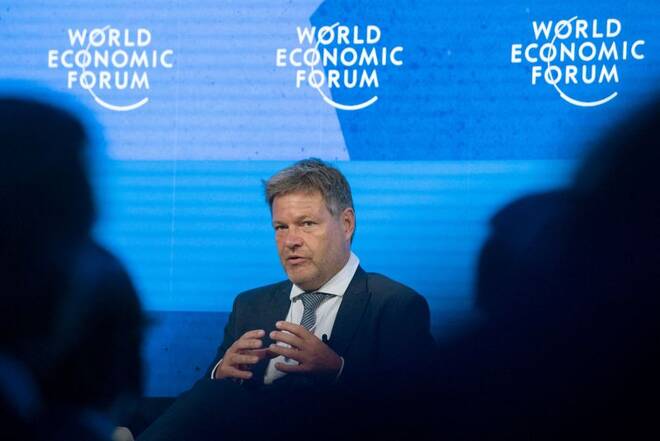Advertisement
Advertisement
Germany changing its China policy with higher priority for human rights, says minister
By:
BERLIN (Reuters) - Germany is changing the way it deals with China and will give higher priority for human rights issues, Economy Minister Robert Habeck said on Tuesday, following fresh media reports about human rights violations in the Xinjiang Uyghur Autonomous Region.
BERLIN (Reuters) – Germany is changing the way it deals with China and will give higher priority for human rights issues, Economy Minister Robert Habeck said on Tuesday, following fresh media reports about human rights violations in the Xinjiang Uyghur Autonomous Region.
Western states and rights groups accuse Xinjiang authorities of detaining and torturing Uyghurs and other minorities in camps. Beijing denies the accusations and describes the camps as vocational training facilities to combat religious extremism.
The BBC, Der Spiegel and other media platforms on Tuesday said they were in possession of a huge cache of data that revealed in unprecedented detail China’s use of so called “re-education” camps and formal prisons as two separate but related systems of mass detention for Uyghurs.
The reports referred to a cache of data hacked from police computer servers in the region.
“It has long been clear that while China is a major trading partner, there are very relevant problems, including when it comes to respecting human rights,” Habeck said in a statement.
Germany is diversifying more, reducing its dependency on China, and will closely examine applications from German companies wanting to make investments in China to rule out human rights violations and forced labour in the supply chain, Habeck added.
“At the EU level, too, government subsidies to Chinese competitors who want to enter the domestic market should be looked at more closely,” he said.
Habeck’s comments, along with remarks made by German Foreign Minister Annalena Baerbock earlier on Tuesday, reflect a tougher stance towards China than the previous government.
Baerbock called on China to clarify the reported human rights violations, saying Germany was committed to protecting rights worldwide.
The United Nations High Commissioner for Human Rights Michelle Bachelet is in China this week on a trip that will include Xinjiang, triggering concerns her visit could lead to an endorsement rather than scrutiny of China’s rights record.
(Reporting by Riham Alkousaa, Editing by Rosalba O’Brien)
About the Author
Reuterscontributor
Reuters, the news and media division of Thomson Reuters, is the world’s largest international multimedia news provider reaching more than one billion people every day. Reuters provides trusted business, financial, national, and international news to professionals via Thomson Reuters desktops, the world's media organizations, and directly to consumers at Reuters.com and via Reuters TV. Learn more about Thomson Reuters products:
Did you find this article useful?
Latest news and analysis
Advertisement
